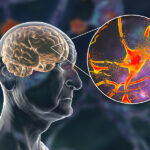By David Blyweiss, M.D., Advanced Natural Wellness
January 26, 2015
- Are you running low on this vital brain nutrient?
- The mind is a terrible thing to waste
- Easy ways slash your risk of Alzheimer’s and dementia
Vitamin D deficiency is a real problem here in the U.S. About three out of every four people has low levels of this nutrient, and you could be one of them.
There aren’t any obvious symptoms of vitamin D deficiency. However, the long-term effects can be very dangerous to your health. Low levels of this amazing nutrient are linked to heart disease, diabetes, cancer, depression and even your appetite.
All of these are serious health risks. But there’s an additional risk that might concern you even more.
It’s the connection between vitamin D and your brain. You see, even if you’re only moderately deficient in vitamin D, it could increase your risk of dementia and Alzheimer’s by more than 50%. If you’re severely deficient, it can more than double your odds of these mind-robbing conditions.
Open your arteries, improve blood flow for a new health miracle...
Did you know your circulatory system has over 60,000 miles of arteries, veins and other blood vessels, if stretched end to end?
But as you age, your blood vessels undergo changes, which may cause them to stiffen, thicken and get clogged.
GOOD NEWS! Doctors have now identified a “Miracle Molecule” inside your arteries that helps OPEN your arteries and IMPROVE blood flow.
It’s what Dr. Valentin Fuster calls it, "One of the most important discoveries in the history of cardiovascular medicine."To you, that means...
- Healthy blood pressure
- Sharper mind and memory
- Skyrocketing energy and muscular strength
- Increased pleasure and passion in the bedroom
- Improved circulation to every cell and organ in your body
Go here to discover a new natural way to significantly boost the levels of this miracle molecule in YOUR body NOW!
Considering that three-quarters of America is running low on this nutrient, these are some pretty frightening numbers. So let’s take a look at how you can stop this “brain-drain” when you bring your vitamin D levels up to par.
Now, you might wonder how vitamin D can have such an impact on your brain health. Let me explain what happens when you have sufficient levels of the sunshine vitamin.
Vitamin D enhances the production of nitric oxide (NO) in the endothelium – the interior surface of your blood vessels. When your body doesn’t produce enough nitric oxide, your blood vessels can’t relax and expand the way they should. This causes your blood to pump harder, which results in high blood pressure that damages your arterial walls.
Guess what happens next? Blood flow to your brain becomes impaired. And that’s bad news when it comes to your mental function.
Without appropriate blood flow, the brain can’t get enough oxygen, glucose and nutrients. Reduced blood flow also makes it hard to flush amyloid from the brain. This can result in the accumulation of Alzheimer’s-related amyloid plaques.
However, when you get enough vitamin D…
The World's Quickest Solution for Ending Prostate and Urinary Misery
This has recently been revealed to be one of the only real breakthroughs in prostate health.
The seeds of a strange fruit (sometimes called "Chinese Apples") hold powerful phytonutrients that are a revolution in prostate health.
In fact, UCLA and Veterans Administration research have now proved this to be true.
Not only that, but it may be the worlds quickest solution for ending prostate misery.
Simply stated, these phytonutrients represent a huge step beyond beta sitosterol, saw palmetto, and other phytosterols alone.
Simply click HERE if you want to have fast prostate relief...restful, uninterrupted sleep...no more constant "urges to go"...enhanced virility...and optimal prostate support for life.
- Your blood pressure is reduced, which cuts down on damage and narrowing of the blood vessels to your brain. This lowers your risk of a blocked or bursting vessel that could result in vascular dementia.
- Nitric oxide levels increase. This relaxes blood vessels and improves blood flow, so more oxygen and nutrients can be delivered to your brain. This will reduce your chances of developing amyloid plaques and tangles associated with Alzheimer’s disease. It also helps keep neurons firing the way they should, which is necessary for communication between brain cells.
- NO also increases activity of something called telomerase. This is an enzyme that helps stop telomeres from damage as they replicate. Better yet, it keeps telomeres in the endothelium of your blood vessels from shortening, which, in turn, helps protect your arterial health – and your brain.
And, speaking of telomeres…
It turns out people who have high vitamin D levels also have longer telomeres. This is a very important side note, because shortened telomeres are a risk factor for early onset dementia.
Now, here’s the thing. You’re probably not getting nearly enough vitamin D from the foods you eat. But there are ways to boost levels of this critical nutrient and keep your brain powered up as you age.
It’s easy enough to get your vitamin D levels tested. All it involves is a simple blood test. Just ask your doctor for a 25-hydroxy vitamin D test. If your reading is below 30 ng/ml, you definitely need a boost. Aim for getting your levels up to about 50 ng/ml.
What should you do if you’re in short supply? Supplement with the most active form of vitamin D available. It’s called vitamin D3, also known as cholecalciferol, and it’s the one that will give you the most benefit.
But don’t stick with the 600 IU the government recommends. That’s much too low. I suggest 2,000 IU daily, or up to 5,000 IU if you’ve been tested as deficient. People who are dark-skinned or overweight may need even more.
And, don’t forget about the most natural source of vitamin D – the sun. During warm weather, boosting your levels of this nutrient is as easy as spending 15 or more minutes outdoors each day without sunscreen. (Sunscreen blocks the UV rays necessary for your body to produce vitamin D.)
If you’re really serious about protecting your brainpower, I also have two more tips that can enhance the beneficial effects of vitamin D…
- Give your nitric oxide an extra kick by eating foods that increase your body’s ability to produce it. These are foods rich in natural chemicals called nitrates. And they aren’t hard to find. My top choices include red beetroot (or beetroot juice), leafy greens, celery, Chinese cabbage, radish and turnips. You’ll also get plenty of nitrates from green beans, leek, cucumber, carrots, garlic, sweet peppers and green peppers.
- Protect your telomeres by getting plenty of healthy omega-3 fatty acids. Omega-3s not only slow down telomere shortening, but can also help lengthen them. And it can happen in as little as four months.I recommend investing in a high-quality fish oil supplement. Look for one that contains oil from fresh, wild-caught, deep-sea fish. And, make sure it’s been molecularly distilled and tested for purity (i.e., no mercury). Aim for 1,200 mg. of EPA and 800 mg. of DHA daily for telomere lengthening.
These are some very easy things you can do to secure healthy brain function, memories and independence as you age. The sooner you get started, the better.
Resources:
Littlejohns TJ, et al. “Vitamin D and the risk of dementia and Alzheimer disease.” Neurology. 2014 Sep 2;83(10):920-8.
Mazza M, et al. “Primary cerebral blood flow deficiency and Alzheimer’s disease: shadows and lights.” J Alzheimers Dis. 2011;23(3):375-89.
Andrukhova O, et al. “Vitamin D is a regulator of endothelial nitric oxide synthase and arterial stiffness in mice.” Mol Endocrinol. 2014 Jan;28(1):53-64.
Vasa M, et. al. “Nitric Oxide Activates Telomerase and Delays Endothelial Cell Senescense.” Circulation Research. 2000; 540-542.
Honig LS, et al. “Association of shorter leukocyte telomere repeat length with dementia and mortality.” Arch Neurol. 2012 Oct;69(10):1332-9.
Hord NG, et al. “Food sources of nitrates and nitrites: the physiologic context for potential health benefits.” Am J Clin Nutr. 2009 Jul; vol. 90 no. 1 1-10.
Kiecolt-Glaser JK, et al. “Omega-3 fatty acids, oxidative stress, and leukocyte telomere length: A randomized controlled trial.” Brain Behav Immun. 2013 Feb;28:16-24






